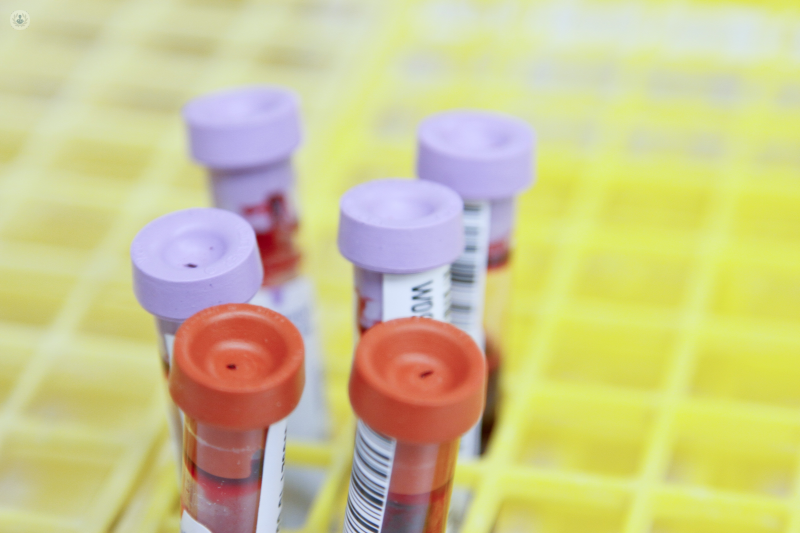


What is an endocrine test?
An endocrinologist uses diagnostic tests for various reasons:
- To find out the levels of various hormones in a patient's body.
- To check if the endocrine glands are working correctly.
- To identify the cause of an endocrinological problem
- To confirm an earlier diagnosis

An endocrine test can help diagnose a variety of specialities and hormonal diseases, including:
- pituitary thyroid adrenal bone and parathyroid (gland beside thyroid gland)
- neuroendocrine tumours (in cells of endocrine and nervous systems)
- carcinoid tumours (slow-growing neuroendocrine tumours)
- reproductive endocrinology
What does it consist of/involve?
Some of the diagnostic tests can include:
- 24-Hour Urine Collection Test
- ACTH Stimulation Test
- Bone Density Test
- CRH Stimulation Test
- Dexamethasone Suppression Test
- Fine-Needle Aspiration Biopsy
- Five-Day Glucose Sensor Test (for diabetes)
- Oral Glucose Tolerance Test
- Semen Analysis
- Thyroid Scan
- TSH Blood Test
Why are endocrine tests done?
Hormones have influence over many physiological aspects, including secondary sexual characteristics, fertility, growth, metabolism and sleep. So, it's often important to check that the hormones are functioning properly.
Endocrine tests are done for different reasons that can range from feeling weak, lethargic or fatigued to experiencing gynaecomastia.
The symptoms of an endocrine disorder can vary widely and depend on the specific gland involved.
An endocrine test can check for endocrine disorders
- Adrenal problems
- Calcium problems
- Glucose (islet cell) problems
- Gonadal problems
- Heart problems
- Hypertensive problems
- Pituitary problems
- Thyroid problems
How do you prepare for an endocrine test?
It will vary on the test, however prolonged fasting is a sensitive procedure for detection of endogenous hyperinsulinism (sensitivity >90 %). It requires fasting.
- Calorie free and caffeine free beverages only may be consumed.
- Prescribed medication usually can be continued.
- Smoking is not permitted during the test.
- The patient would need to remain physically active during waking hours, but not leave the ward.
What should be expected from an endocrine test?
It will depend on the test. In many cases, urine and bloods tests are used to check your hormone levels, in some cases, Imaging tests are done to pinpoint or locate a tumor or other abnormalities that may be affecting the endocrine glands.
Treatment of endocrine disorders are often complicated, as a change in one hormone level can throw off another. Your doctor may order routine blood work to check for issues or to determine if your treatment plan or medication needs to be adjusted.
What do abnormal results mean?
The way abnormal results are read will depend on the testing method used.
However, an endocrine test can often uncover some of the following conditions:
- Diabetes
- Adrenal insufficiency. Cushing's disease.
- Gigantism (acromegaly) and other growth hormone problems.
- Hyperthyroidism.
- Hypopituitarism.
- Multiple endocrine neoplasia I and II.
- Polycystic ovary syndrome (PCOS).
- Precocious puberty.
What are the latest developments in endocrine tests?
In recent years, at home endocrine tests have become increasingly popular.